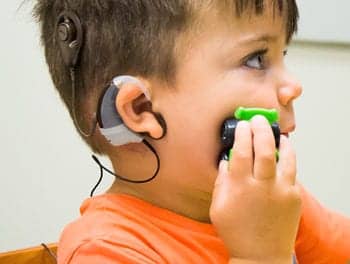Researchers from the University of California at Berkeley and Johns Hopkins University in Maryland say that the brain’s speech center, known as Broca’s area, turns off during speech. In an article published in the February 17, 2015 online edition of the Proceedings of the National Academy of Sciences, the study authors explain how their new findings reveal that speech production is more complex than previously thought.
Neuroscientists traditionally organized the brain’s language center into 2 main regions, the researchers report, one for perceiving speech and one for producing speech.
“That belief drives how we map out language during neurosurgery and classify language impairments,” said study lead author Adeen Flinker, PhD, a postdoctoral researcher at New York University who conducted the study as a UC Berkeley PhD student. “This new finding helps us move towards a less dichotomous view where Broca’s area is not a center for speech production, but rather a critical area for integrating and coordinating information across other brain regions.”

New research findings about the brain’s speech center may help scientists better map out the brain’s language regions (Photo courtesy of Adeen Flinker)
Dr Flinker believes the discovery has implications for the diagnoses and treatments of stroke, epilepsy, and brain injuries that result in language impairments.
“Every year millions of people suffer from stroke, some of which can lead to severe impairments in perceiving and producing language when critical brain areas are damaged,” said Dr Flinker. “Our results could help us advance language mapping during neurosurgery as well as the assessment of language impairments.”
In the 1860s, French physician Pierre Paul Broca pinpointed the prefrontal brain region as the brain’s speech center, according to the researchers, and Broca’s area has since ranked among the brain’s most closely examined language regions in cognitive psychology. Now Flinker and fellow researchers have found that Broca’s area—located in the frontal cortex above and behind the left eye—engages with the brain’s temporal cortex, which organizes sensory input, and later the motor cortex, as we process language and plan which sounds and movements of the mouth to use, and in what order.
However, with this new study the researchers found that Broca’s area disengages when we actually start to speak. The researchers report that although Broca’s area shuts down during speech production, it likely remains active during conversation in order to plan future words and full sentences.
The researchers reportedly tracked electrical signals emitted from the brains of 7 hospitalized epilepsy patients as they repeated spoken and written words aloud. Researchers followed the patients’ brain activity from the auditory cortex, where the patients processed the words they heard, to Broca’s area, where they prepared to articulate the words to repeat, to the motor cortex, where they finally spoke the words out loud.
Source: University of California at Berkeley
Photo credit: Adeen Flinker, PhD



